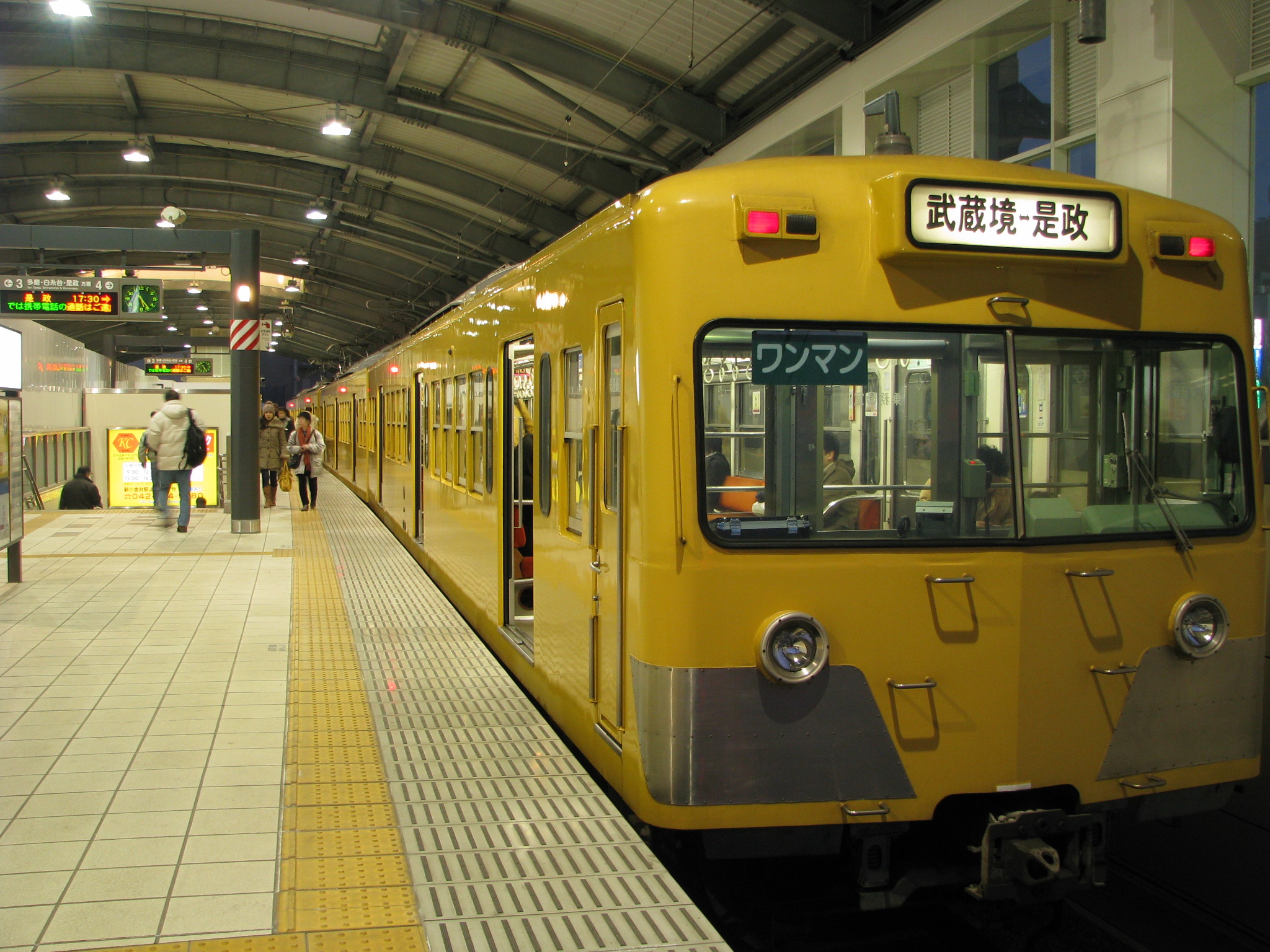|
Tamagawa Line (other) operated by Tokyu Corporation
{{disambig ...
The Tamagawa Line may refer to either of the following railway and tramway lines in Tokyo, Japan: * Tamagawa Line operated by Seibu Railway * Tamagawa Line (tramway) formerly operated by Tokyu Corporation, a surviving branch of which is the Tōkyū Setagaya Line * Tōkyū Tamagawa Line The is a commuter railway line in Japan owned by private railway operator Tokyu Corporation. It runs between Tamagawa and Kamata in southwest Tokyo, entirely within Ōta ward. The operator's name, Tōkyū, is included in the formal name of t ... [...More Info...] [...Related Items...] OR: [Wikipedia] [Google] [Baidu] |
Seibu Tamagawa Line
The is an 8.0 km railway line in the western suburbs of Tokyo operated by the private railway operator Seibu Railway. The line connects Musashi-Sakai Station on the Chūō Main Line with Koremasa Station along the Tama River. The line has only six stations and is not connected to any other part of the Seibu Railway system. The line is single-track: trains traveling in opposite directions pass each other as necessary at the stations, which are double-tracked. Although the line is short, it provides access to the Tokyo University of Foreign Studies, the Tokyo Racecourse, the Ajinomoto Stadium, the Tokyo Metropolitan Police Department police school, many cemeteries (including Tokyo's largest, Tama Cemetery), the American School in Japan, and the Tama River. Stations Rolling Stock As of March 2010, the line's services are operated exclusively by a fleet of 16 New 101 Series. These trains are wrapped with different liveries on various occasions. However, the New 101 Series ... [...More Info...] [...Related Items...] OR: [Wikipedia] [Google] [Baidu] |
Tōkyū Tamagawa Line (tramway)
The is a major commuter line operated by the private railway operator Tokyu Corporation and connecting south-western suburbs of Tokyo and neighbouring Kanagawa Prefecture, with its western terminus of , to a major railway junction of western downtown Tokyo, . At Shibuya, nearly all the trains continue on the Tokyo Metro Hanzomon Line. The line's color on maps and station guides is green, and stations carry the prefix "DT" followed by a number. History Prewar predecessors On March 6, 1907, the opened the first section of an interurban line between Shibuya and what is now , using gauge. The line was called the and is not to be confused with today's Tokyu Tamagawa Line (東急多摩川線). The branch from Sangen-Jaya Station opened on January 18, 1925. Tama Den-En-Toshi Plan In 1953, Tokyu Group president Keita Gotō unveiled a "new town" planning scheme called the ''South-Western Area Development Plan''. He envisioned new railway line and freeway and large, clean hou ... [...More Info...] [...Related Items...] OR: [Wikipedia] [Google] [Baidu] |
Tōkyū Setagaya Line
The is a Japanese multinational ''keiretsu'' (conglomerate) holding company headquartered in Shibuya, Tokyo. Its main operation is , a wholly owned subsidiary operating railways in the Greater Tokyo Area. History The oldest predecessor of company was the , opened in 1908; the railway's operations were converted into a company in 1910. Keita Gotō, now known as a notable Japanese industrialist, was appointed as the CEO of the Musashi Electric Railway in 1920 and later he began a mass expansion program. The most important predecessor was first registered on September 2, 1922, as the and is related to the construction of Den-en-chōfu (it was originally founded by the developers of Den-en-chōfu); it was acquired by the Musashi Electric Railway in 1924, shortly before Musashi was renamed into the , also known as the Toyoko, in the same year. After Musashi/Toyoko's acquisition, the Meguro-Kamata Electric Railway initially operated as a subsidiary of Toyoko. It was not ... [...More Info...] [...Related Items...] OR: [Wikipedia] [Google] [Baidu] |

